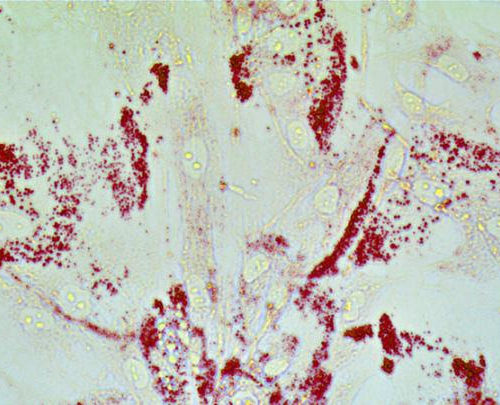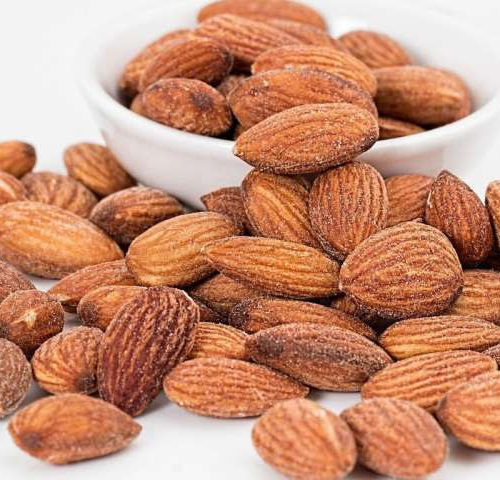by Margareta Gustafsson Kubista, University of Gothenburg There is a clear link between improved gut microbiota and one of our most common cholesterol-lowering drug groups: statins. This is evident from a European study involving researchers from the University of Gothenburg. Scientists have previously found an association between the gut microbiota and various metabolism-related and cardiovascular...
Tag: <span>cardiovascular</span>
Loss of lipid-regulating gene fuels prostate cancer spread
JOHNS HOPKINS MEDICINE ANCER CELLS GOBBLE UP LIPIDS. PROSTATE CELLS ARE STAINED WITH OIL-RED O TO DETECT LIPID DROPLETS. OUR WORK SHOWS THAT REDISTRIBUTION OF LIPIDS FROM PROSTATE CANCER MICROENVIRONMENT TRIGGERS INFLAMMATION AND… view more CREDIT: NICK (JIN-YIH) LOW Johns Hopkins Kimmel Cancer Centerresearchers from the Department of Radiation Oncology and Molecular Radiation Sciences identified...
Adding lean beef to a healthy diet does not adversely affect heart health or diabetes risk
Bloomington, Ind. and Chicago, Ill. — Results from a new study show that risk factors for cardiovascular disease and diabetes were similar when participants consumed a healthy US-style eating pattern with and without an additional 5.3 ounces of lean beef. The added beef replaced carbohydrates, primarily refined starches. All participants were considered at risk for...
Can pollution face masks really protect us from exposure to toxic particles?
by Ian Colbeck, The Conversation An estimated 28,000 to 36,000 deaths a year in the UK are attributed to long-term exposure to air pollution. Exposure to air pollution can cause a range of serious health complications, including lung cancer, heart disease and stroke. Pollution can come from a variety of sources, including wood burning fires...
Social isolation increases the risk of heart attacks, strokes, and death from all causes
by European Academy of Neurology Those who are socially isolated are over 40% more likely to have a cardiovascular event, such as a heart attack or stroke, than those who were socially integrated, new research has shown. The German study, due to presented tomorrow at the European Academy of Neurology (EAN) Virtual Congress, found that...
Eating almonds can improve vascular health, study finds
by King’s College London Research led by Dr. Wendy Hall, Reader in Nutritional Sciences at King’s College London and published in the American Journal of Clinical Nutrition found that replacing popular snacks such as biscuits and crisps with almonds can improve endothelial function, a key indicator of vascular health, and lower ‘bad’ LDL-cholesterol. Participants who...
INSTEAD OF SOCIAL DISTANCING, TRY DISTANT SOCIALIZING
The same technologies that people once blamed for tearing society apart might be our best chance of staying together during the COVID-19 outbreak, an expert argues. Social distancing—voluntarily limiting physical contact with other people—has been vital to help slow the spread of the novel coronavirus. It’s important that people remain connected during social distancing, however,...
Some recommended cardiovascular medications prescribed less frequently to women
DALLAS, May 20, 2020 — Women receiving treatment in primary care received some cardiovascular medication prescriptions at a lower rate than men, according to new research published today in the Journal of the American Heart Association, an open access journal of the American Heart Association. “Additional efforts need to be taken to ensure that everyone,...
Heat now more lethal than cold for people with respiratory diseases in Spain
Barcelona, 20 May 2020. A new study by the Barcelona Institute for Global Health (ISGlobal), a centre supported by the “la Caixa” Foundation, has analysed deaths linked to respiratory disease in Spain between 1980 and 2016. The study, which analysed data on more than 1.3 million deaths, found that the seasonality of temperature-attributable mortality from...
High blood pressure during and after exercise may be markers for disease later in life
Higher blood pressure during exercise and delayed blood pressure recovery after exercise are associated with a higher risk of hypertension, preclinical and clinical cardiovascular disease and death among middle-aged to older adults. Blood pressure responses to exercise are significant markers of cardiovascular disease and mortality risk in young to middle-aged adults. However, few studies have...





